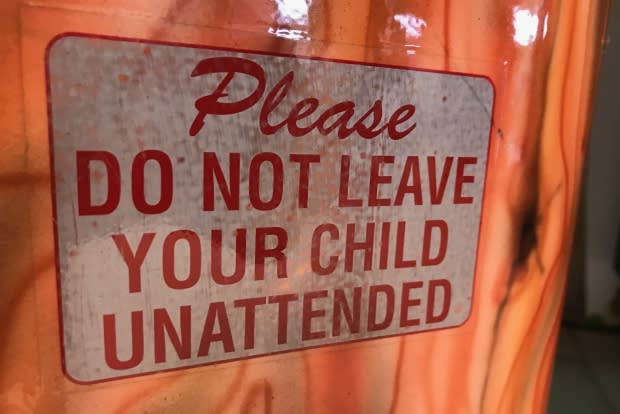Parenting by the numbers: How old does a child need to be to do any of these things?
As parents. we often wonder how old are children should be before we let them do certain things, such as get a cellphone — I'm still on the fence on that one.
But at what age can you leave your child unsupervised? Most of us have probably been tempted to leave our youngster in the car while we pop into the store to buy milk — but is that against the law?
There seems to be a lot of misinformation out there, so I started digging.
As part of my work on CBC Radio's St. John's Morning Show, I spoke with the Royal Newfoundland Constabulary's media relations officer about it and was pointed to the Criminal Code of Canada, Section 218.

The law says that if you leave a child under the age of 10 unattended, it's only a crime if by leaving them alone they could be harmed.
"Every one who unlawfully abandons or exposes a child who is under the age of ten years, so that its life is or is likely to be endangered or its health is or is likely to be permanently injured," the law says, is guilty of an indictable offence that could mean a criminal conviction and a prison sentence of up to five years.
People are watching
In this age of smartphones and social media, members of the public can be quick to intervene — and hit record — if a child appears to be left alone or in danger.
If the police have been called, but no crime has been committed, the Department of Children, Seniors and Social Development may still play a role.

Depending on the circumstances, the department may start looking into the family situation and may take steps to ensure the child is safe. I spoke with a department spokesperson who provided answers to my questions via e-mail.
No defined age
The department is guided by the Children and Youth Care and Protection Act which does not define a specific age at which a child can be left without supervision.
Instead, the department said it tries to leave this up to the discretion of parents and guardians.
Social workers may chose to intervene if there is a pattern of police being called. The age and maturity level of the child is taken into account. The department said "infants, young children, or children with a disability are more vulnerable."
The location and the length of time the child is left unsupervised are taken into account.
Other factors considered are: Have steps been taken to ensure the child's safety? And does the child have means to contact an adult?
The department says intervention in these situations is done on a case-by-case basis.
Becoming an 'adult'
On their 19th birthday, your children finally have the rights of an adult, which — like it or not — includes them being able to purchase alcohol, marijuana, tobacco and lottery tickets.
But that doesn't mean your teenager doesn't have some rights. There are a number of things that children can do at younger ages.
The Office of the Child and Youth Advocate has a publication called Legal Milestones: What Young People Need to Know.
Most of this information is also available online from the provincial government.
Here are some highlights:
Age 12: Operate a snowmobile with supervision by someone 19 or older.
Age 12: Use a firearm to shoot small game, but must have parental consent in writing and completion of firearms safety training.
Age 12: Can legally change name, with parental consent.
Age 13: Operate a snowmobile alone.

Age 14: Learn to fly a plane with a student pilot permit.
Age 14: Legally work in an office, arena, store, restaurant serving area, and pay into Employment Insurance.
Age 15: Work in a factory, restaurant kitchen, garage or warehouse.
Age 16: Can join the military reserves.
Age 16: Get married, with parental consent.
Age 16: Can get a tattoo or body piercing, with parental consent.
Age 17: Can donate blood.
Age 17: Fly a hot air balloon, with valid licence.
Age 18: Be permitted to work in an underground mine.
Age 18: Can legally vote, and apply to run as a candidate in an election.
The latest Milestones book was published in 2012. The Office of the Child and Youth Advocate announced in June 2018 that it is no longer producing the Milestones booklet. Instead, the department refers any calls or questions to the most appropriate department or agency for the most up-to-date information.
Read more from CBC Newfoundland and Labrador
More highlights from The St. John's Morning Show
Subscribe to our podcast and get a highlight every weekday.

